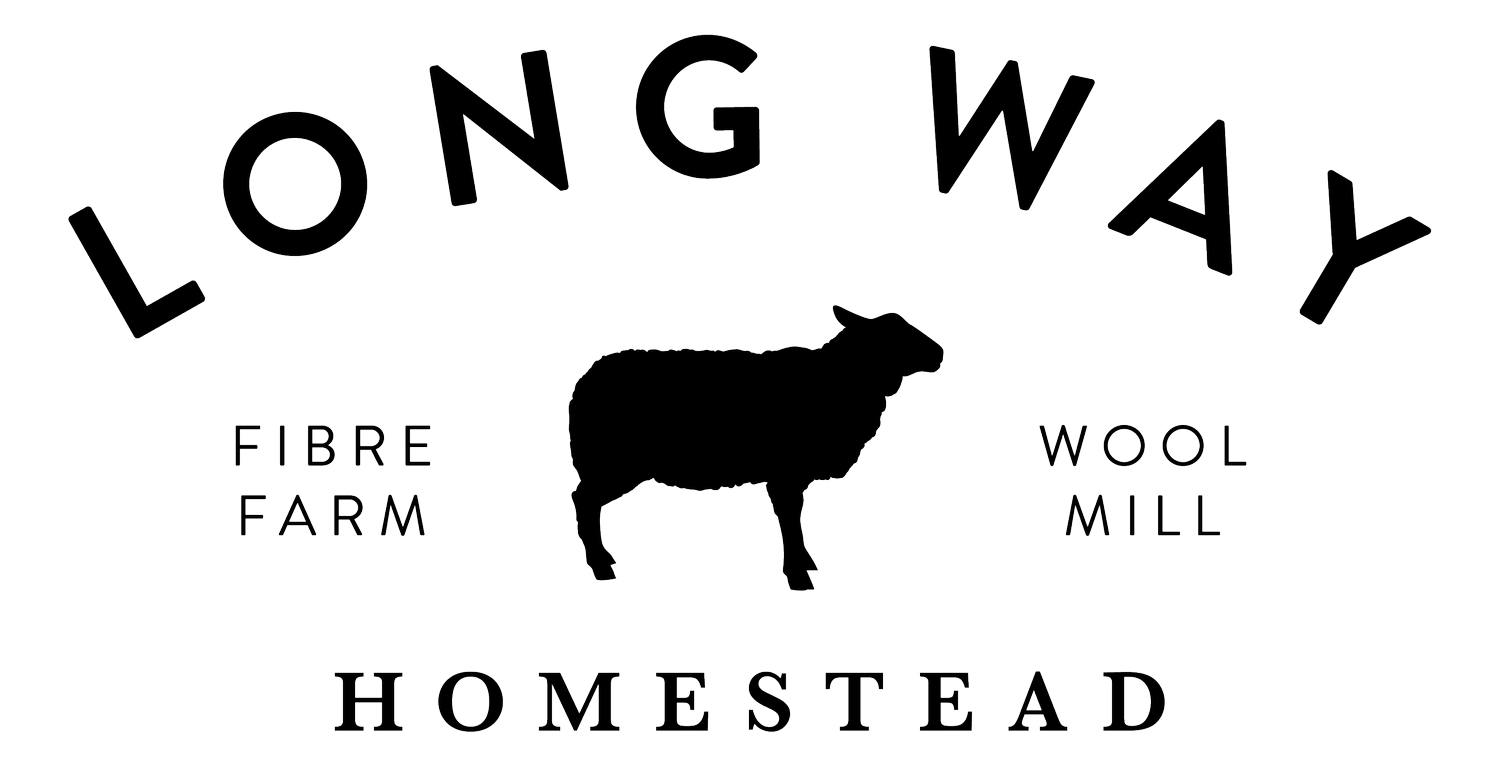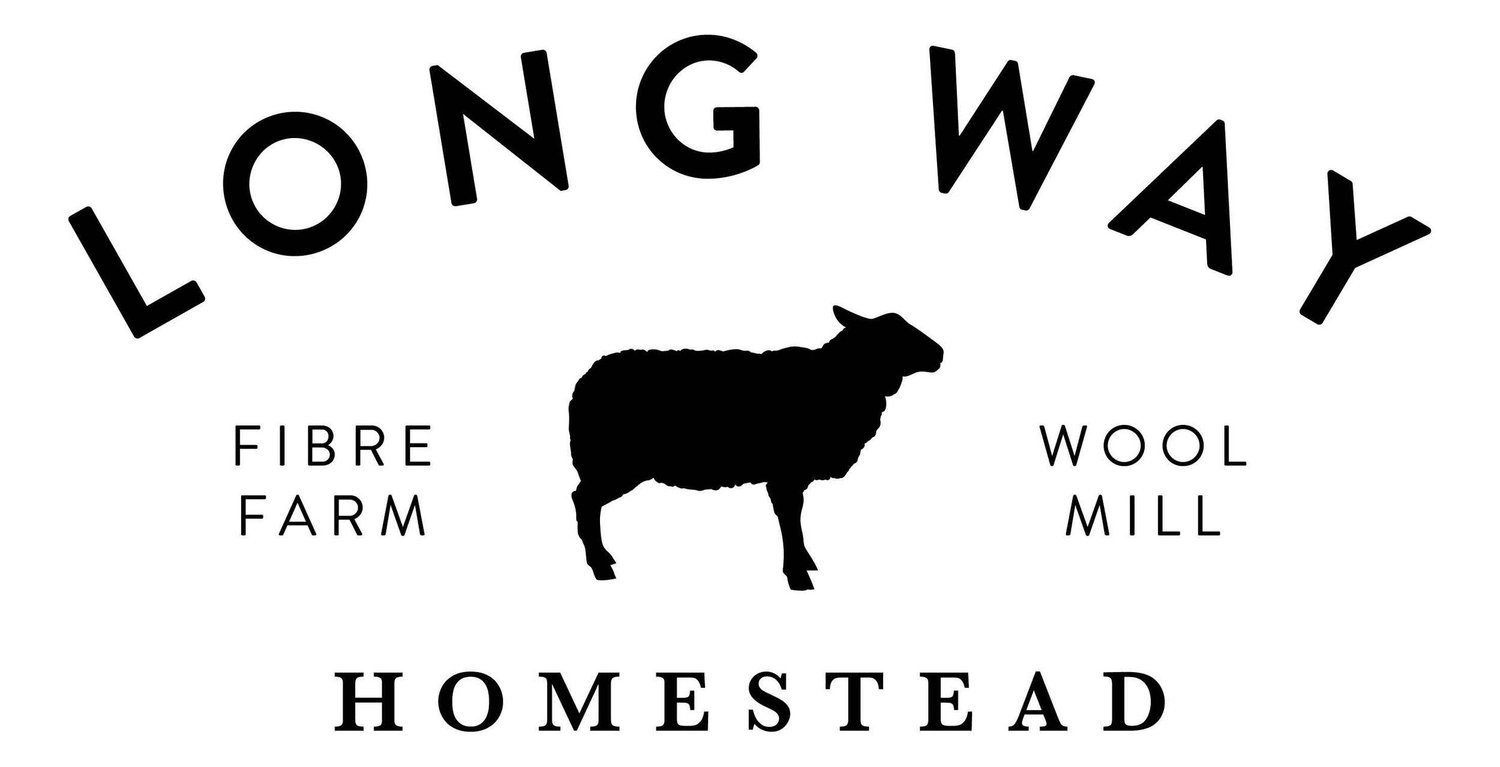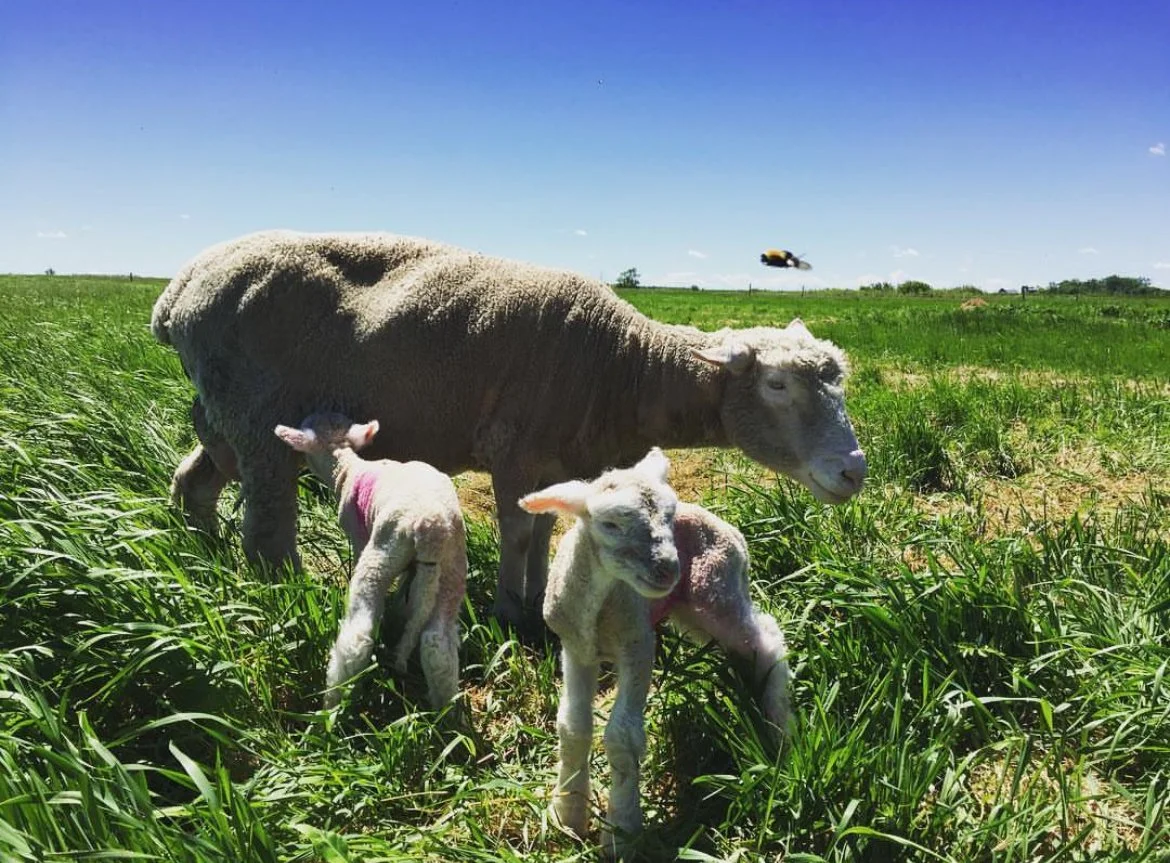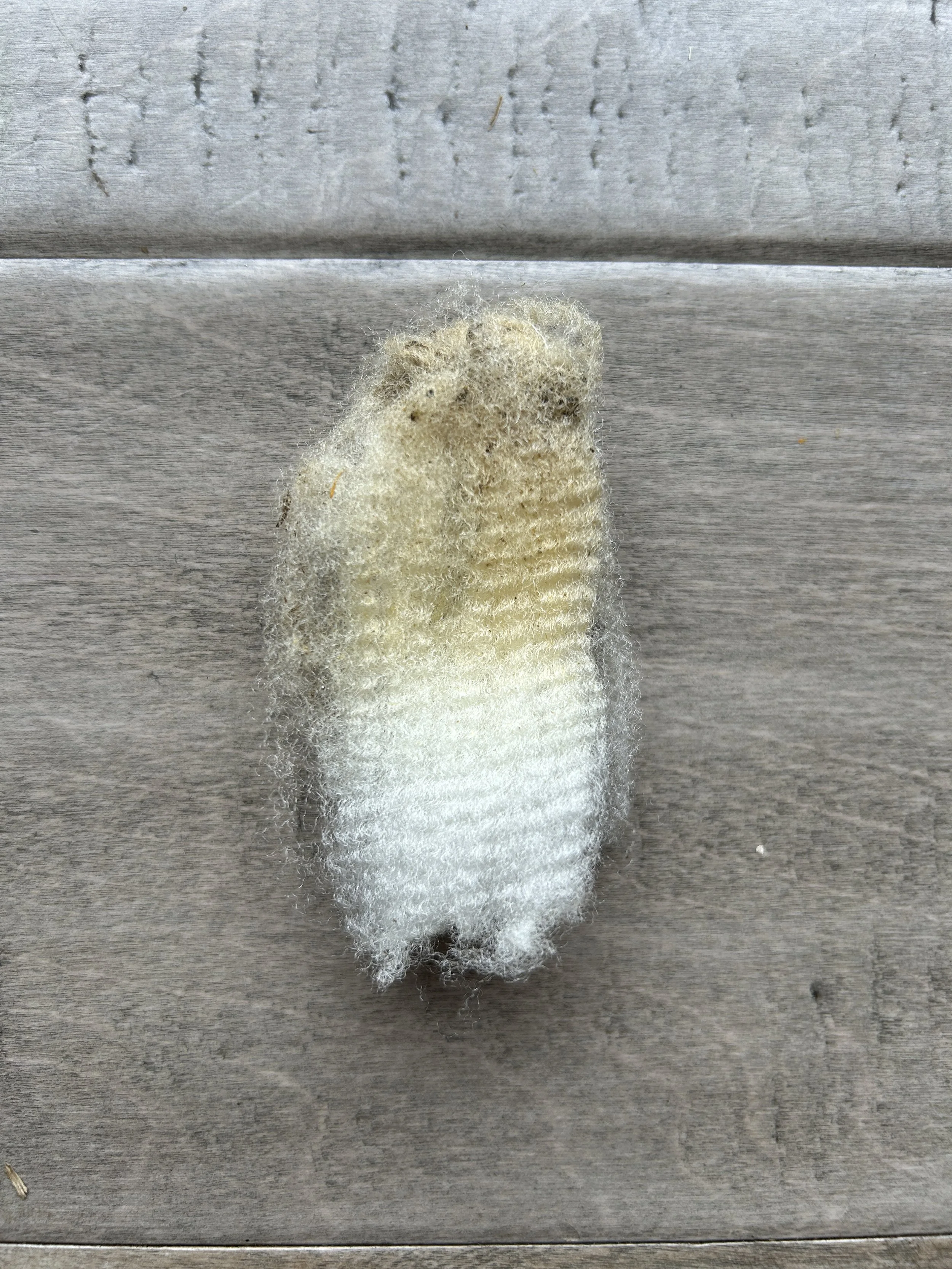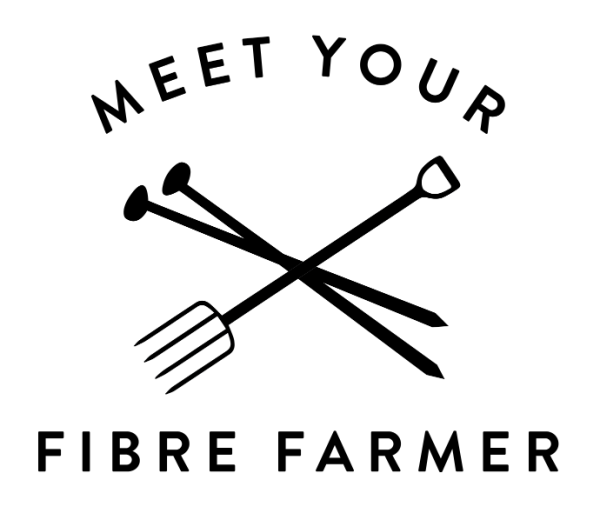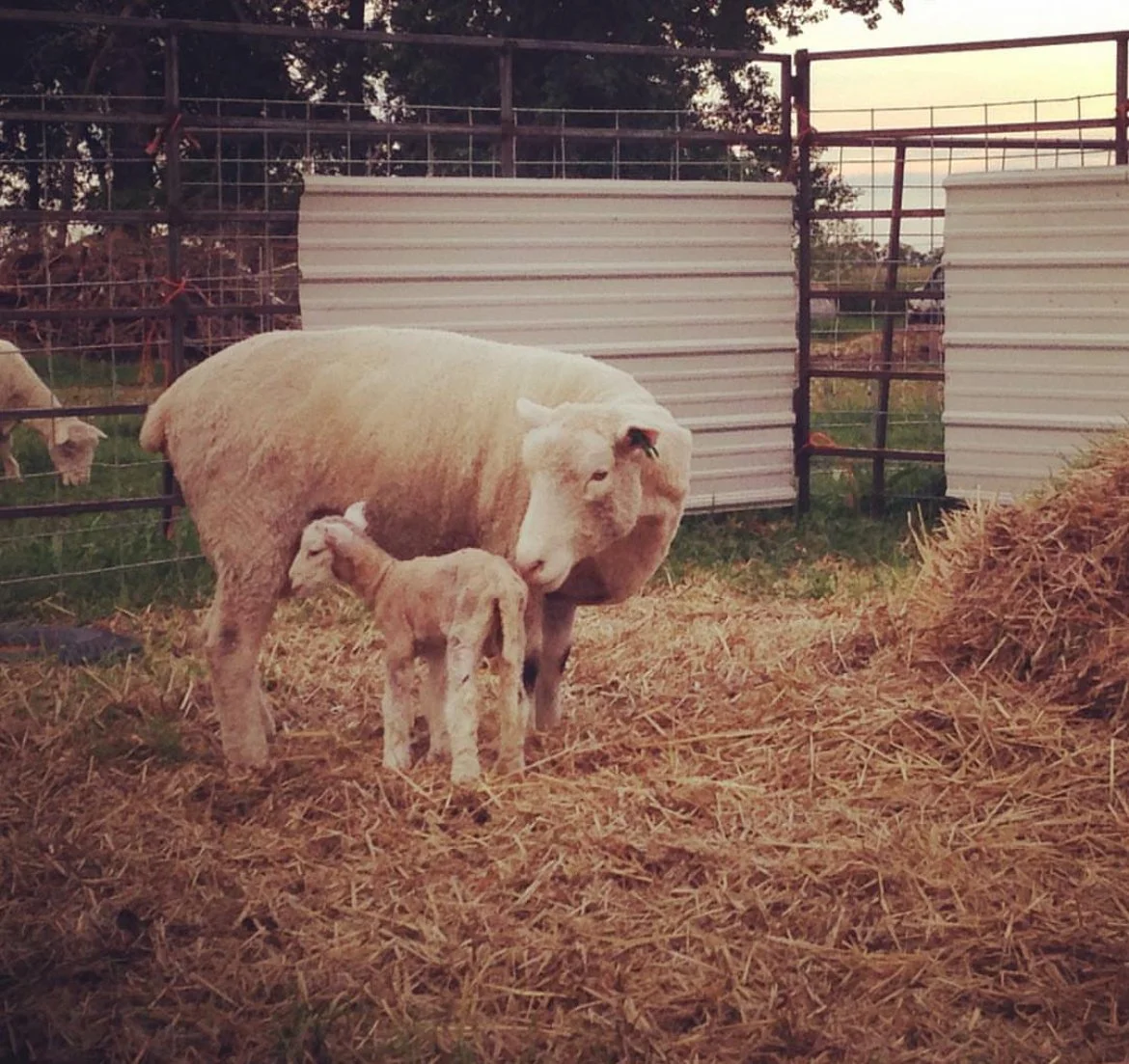Polled Dorset
Polled Dorset sheep is a breed that was developed out of the Dorset Horn sheep (polled refers to the lack of horns). The Dorset Horn breed was developed many hundreds of years ago and is currently on the Conservation Breed list. The Polled Dorset is quite popular in North American sheep farms. The North American version was developed at the North Carolina State University in 1956. Researchers developed a breeding program out of a research flock of Dorset Horn sheep that had developed a mutation that resulted in the sheep not having horns.
The Dorset (both Horn and Polled) can breed out of season and are very prolific. This makes them a great choice for sheep operations that want lambs year round for the commercial meat markets and want good mothering and multiple births. They are easy to raise and can thrive on a variety of conditions and land bases.
This is a very versatile wool! It has a lot of bounce - almost like a sponge - with dense locks. This breed only produces white wool and has more of a matte appearance. The staple is an average length and the crimp is very irregular. The micron count is representative of more of a medium wool and can be utilized in many different ways.
The wool can be processed in many different ways to produce a lovely and versatile finished product. Dorset wool can be spun for loft (more like a woolen spun) and has historically been used in the production of flannels and tweeds. It can also be spun as a worsted style yarn for a more smooth yarn and used in garments, blankets and other garments. Dorset wool will take dye well. It will not felt readily and we have often used Dorset wool in our pillows and other bedding items.
average staple length: 3 - 5 inches
fibre diameter: 26 - 33 microns
fleece weight is between 5 - 9lbs
Dense locks with strong and irregular crimp
We purchase our Polled Dorset wool from a medium sized sheep farm in south-central Manitoba (near Stonewall). They raise just over 300 Dorset and BFL sheep. They are focused on meat production and have beautiful wool as well.
I dyed up the DORSET wool in some fun colours and sets of mini skeins - so anything with colourwork would be a perfect fit for this full-bodied yarn in beautiful colours!
